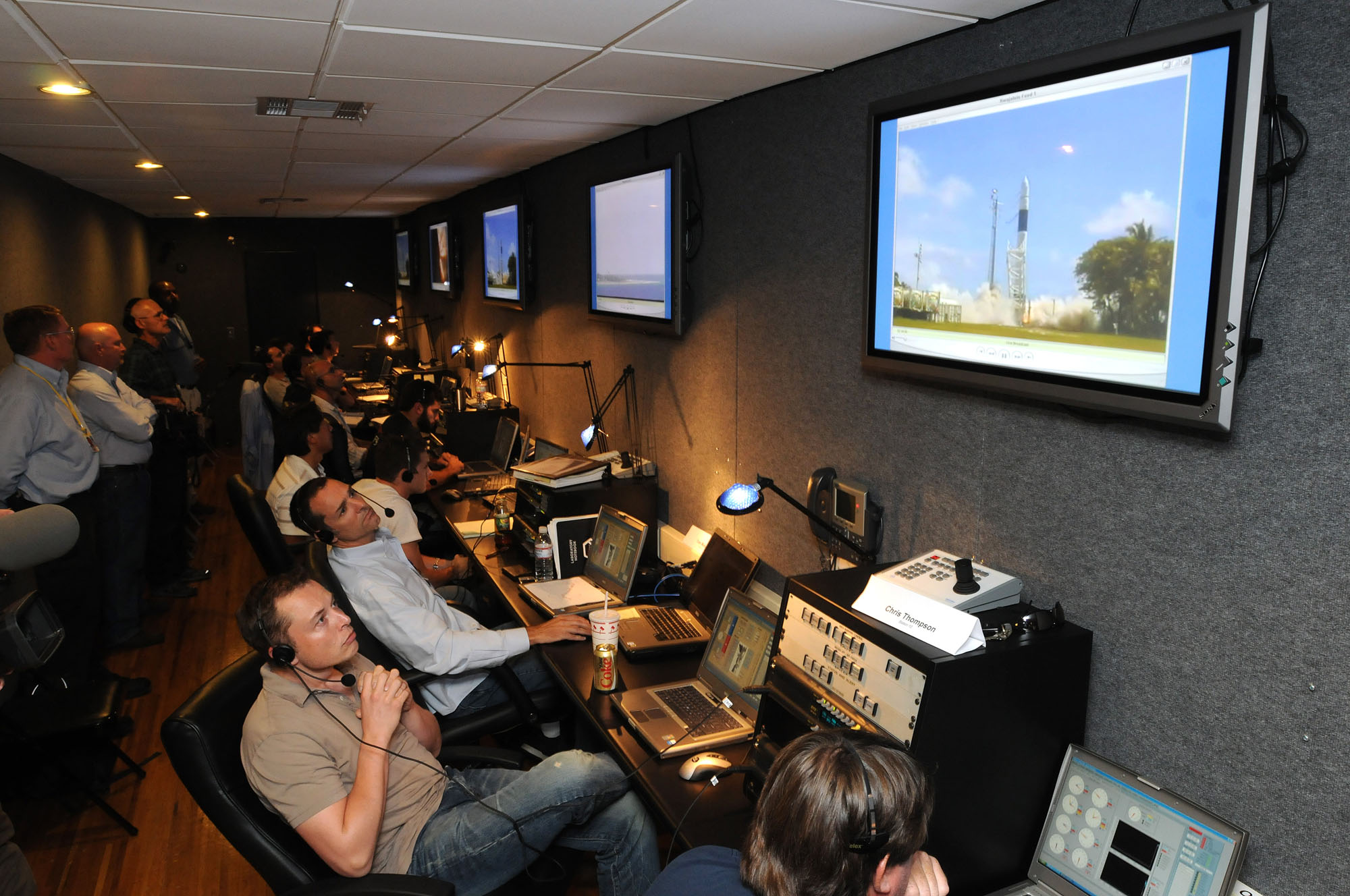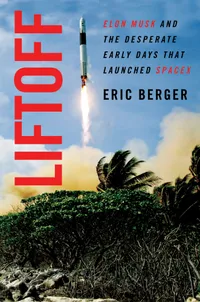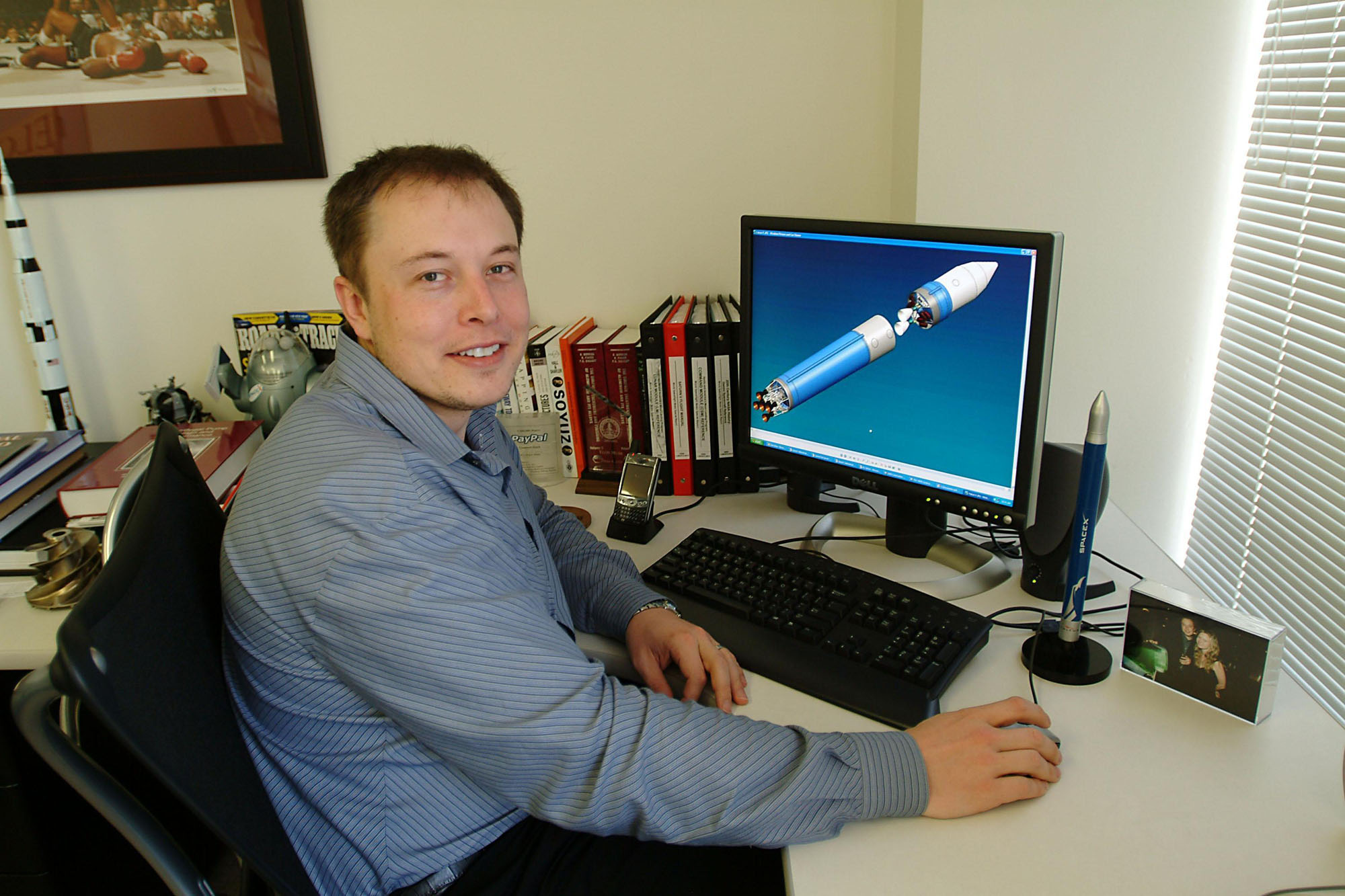'Liftoff': Eric Berger's tale of the wild years of SpaceX's youth

Long before SpaceX's self-landing rockets, Tesla-riding space mannequin or Starship prototype tests for future Mars missions, the California company was already doing daring things in space exploration.
Veteran Houston-based space reporter Eric Berger, now of Ars Technica and formerly of The Houston Chronicle, tackles the early years of SpaceX in his new book "Liftoff: Elon Musk and the Desperate Early Days That Launched SpaceX" (William Morrow, 2021). The book, while focusing heavily on SpaceX's early years, shows the roots of the daring steps the now-famous company is taking into even newer frontiers: human missions and Mars exploration.
You'll read about the development of SpaceX's first rocket, the Falcon 1, built at a time when few companies dared to create these flying machines themselves. It took four tries to even get the rocket safely into orbit, and Berger's book shows the conversations and innovation that SpaceX embraced over several years to get Falcon 1 launched safely.
Related: See the evolution of SpaceX's rockets in pictures
Buy "Liftoff: Elon Musk and the Desperate Early Days That Launched SpaceX" by Eric Berger on Amazon.com
Now $23.79 (15% off from $27.99)
Berger told Space.com that when Falcon 1 finally made it to space on Sept. 28, 2008, he didn't notice. But he did have a valid excuse — Hurricane Ike had just hit Houston and he, along with many other reporters in the city, pulled many extra hours to keep the community informed.
"I was completely swamped in coverage for that storm and I was completely oblivious," he told Space.com in an interview. Even Berger's home field of space was busy, as at least one space station delivery was delayed due to Ike and NASA was working extra hours itself to keep space shuttle flights running on time — and safely.
But Berger has been following SpaceX closely in the years since, and decided to write the book after witnessing the spectacular debut launch of the company's new Falcon Heavy rocket at NASA's Kennedy Space Center in Florida, in 2018. That mission saw the booster rockets safely self-land near the launch site, as a Tesla soared into space with a mannequin nicknamed "Starman."
Breaking space news, the latest updates on rocket launches, skywatching events and more!
"I realized not just that SpaceX was a super interesting company, but this really was a transformative space company of my generation," Berger said. "There's been a lot of efforts in the past to do what SpaceX has done, but they failed. I wanted to see how they succeeded."
Berger focused on the Falcon 1's development, testing and launch as SpaceX — being such a small company at the time — didn't receive nearly as much media coverage about that rocket as subsequent generations. He recalls, like many other reporters of the era, having a "healthy skepticism of all the grand claims" SpaceX was discussing at the time — like building a spaceship called Dragon (which has now flown 20 cargo missions and two crewed missions to the International Space Station and counting) or making launches happen with reusable, landable rockets — now a fairly routine thing after many failed, explosive tests.
Looking back at SpaceX's claims, Berger says he has come to realize those claims had value and vision: "It wasn't going to be done on time, but they probably would get there," he said. Berger urged everyone to therefore keep an eye on the early Starship development; while prototypes are exploding now, SpaceX is just getting started.
Fortunately for the book, the early part of Berger's research in 2019 took place well before the novel coronavirus pandemic, allowing Berger to make several visits to the SpaceX factory in Hawthorne, California and to do interviews in person. Once the pandemic erupted in the spring of 2020, naturally he pivoted the remaining work to phone interviews and remote research. Berger added he was able to find time for writing in between his normal duties at Ars Technica, as he has a flexible work schedule — but a lot of writing also took place at night, away from family duties that normally take up much of his time.
Readers new to SpaceX may be disappointed that Berger stops the story after Falcon 1's first flight, but he said he hopes to one day carry on the tale to the modern day in more depth; the book briefly touches upon the last decade of SpaceX work, but more could be said.
"I think the key message is the world's most interesting space company almost didn't exist, and if it hadn't been for these crazy adventurers — for a small group of engineers — SpaceX would not exist," Berger added. "You wouldn't see drone ship landings on the Atlantic Ocean, or the Falcon Heavy launches, or Crew Dragon missions to the International Space Station. SpaceX is a great American success story and it was fun to go back and find out how it happened."
You can buy "Liftoff: Elon Musk and the Desperate Early Days That Launched SpaceX" by Eric Berger on Amazon.com as hardcover book ($23.79), Kindle e-book ($14.99), or an audiobook narrated by Rob Shapiro ($21.55). You can also read excerpts of "Liftoff" on Ars Technica and Space News.
Follow Elizabeth Howell on Twitter @howellspace. Follow us on Twitter @Spacedotcom and on Facebook.

Elizabeth Howell (she/her), Ph.D., was a staff writer in the spaceflight channel between 2022 and 2024 specializing in Canadian space news. She was contributing writer for Space.com for 10 years from 2012 to 2024. Elizabeth's reporting includes multiple exclusives with the White House, leading world coverage about a lost-and-found space tomato on the International Space Station, witnessing five human spaceflight launches on two continents, flying parabolic, working inside a spacesuit, and participating in a simulated Mars mission. Her latest book, "Why Am I Taller?" (ECW Press, 2022) is co-written with astronaut Dave Williams.



